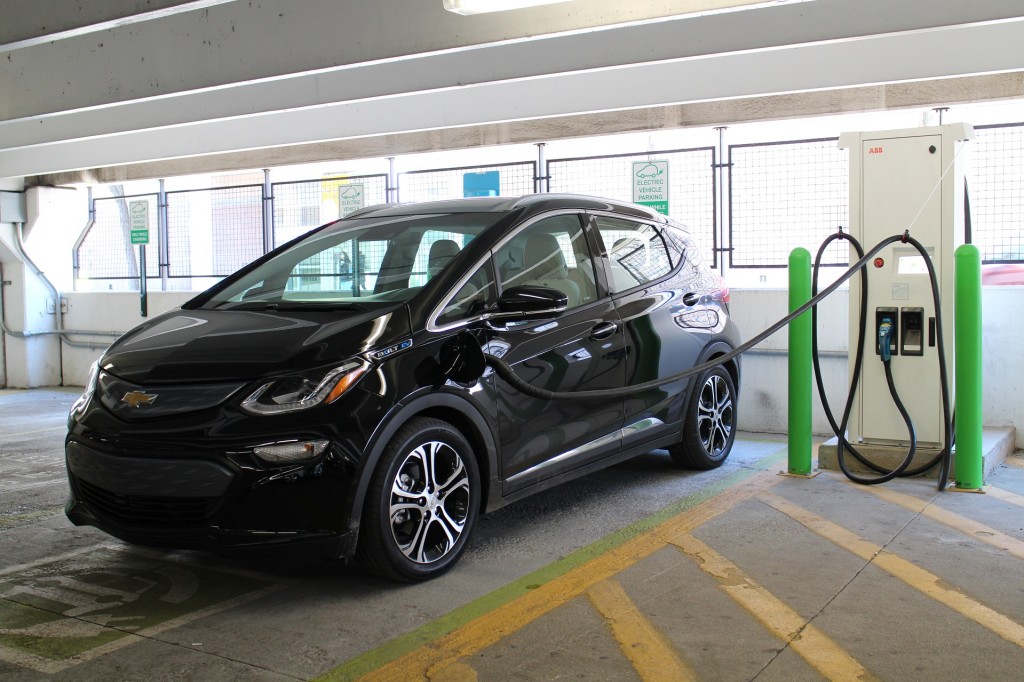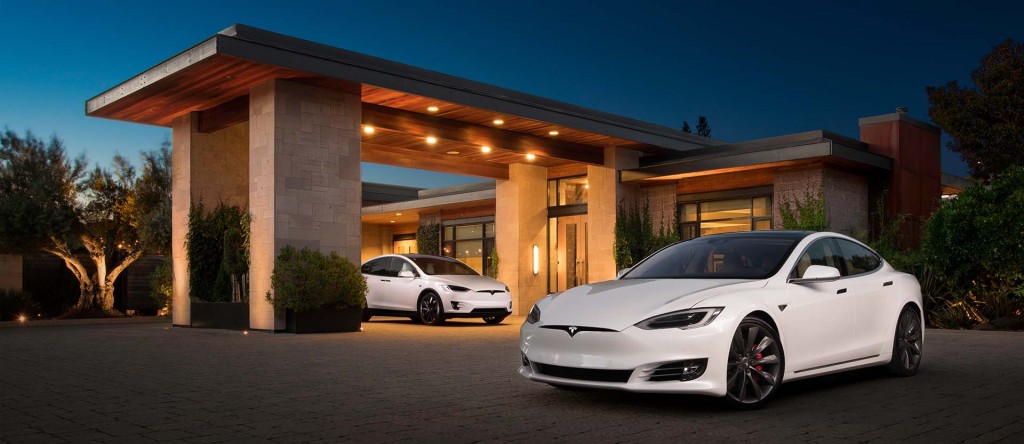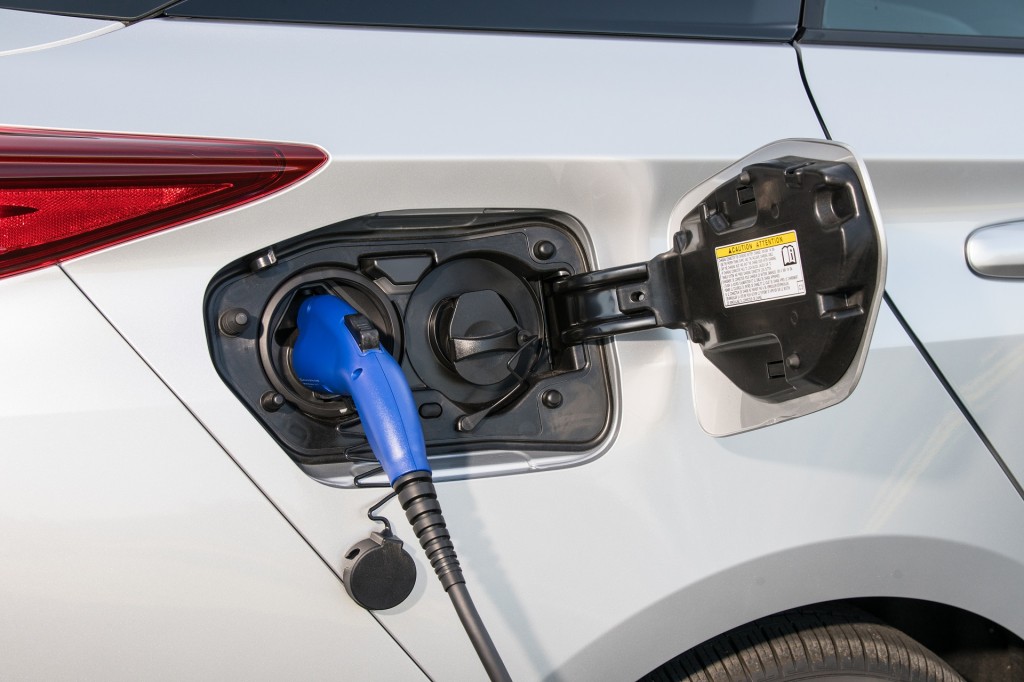The U.S. federal income-tax credit for purchase of an electric car has seen its share of attacks over the years.
Now a new video seeks to twist the facts to paint those subsidies in a bad light.
While facts don't lie, it's easy to create a new narrative by taking carefully chosen facts out of context and presenting only a small part of a broader story.
DON'T MISS: Propaganda video claiming 'dirty electric cars' debunked
The video from Koch-funded group Fueling U.S. Forward recently surfaced and was promptly debunked, thanks to Desmog Blog.
We're not linking to it here, but you can find it on YouTube under the title "Hidden Costs of Electric Cars," if you want to see the whole thing.
The video claims that the electric-car tax credits go solely go to "wealthier households."

2017 Chevrolet Bolt EV electric car at EVgo fast-charging station, Newport Centre, Jersey City, NJ
The study that backed up that claim covers only the period 2006 and 2012, at the very dawn of modern electric cars.
While it was accurate to say that as of 2012, 90 percent of the electric car tax credits were used by wealthy individuals, far more have been sold since then.
The only plug-in and battery-electric vehicles on sale during that time were the Nissan Leaf, Chevrolet Volt, and Tesla Model S.
READ THIS: The Five Most Ignorant Media Myths About Electric Cars
Each cost over $30,000 after the tax credits were factored in, meaning the cars were far more expensive than a typical new car.
Today, there are almost two dozen plug-in electric cars on the market in some states, with a far wider range of prices; several carry prices starting below $30,000, even before the $7,500 incentive is applied.
(It's also worth pointing out that most pioneering consumer goods come in at the high end of the market, meaning they're usually bought by more affluent consumers—but that's a different topic.)

2017 Tesla Model S
To correct the video's words, electric cars are no longer "toys" of "millionaires and billionaires."
The video singles out Tesla drivers in particular, portraying them as representative of all electric-car drivers.
In fact, Model S sales represent only 12 percent of plug-in electric vehicles sold in the U.S. through 2017.
CHECK OUT: Three big automaker myths about CAFE: busted by Consumers Union
The Chevrolet Volt, Nissan Leaf, and plug-in versions of the Toyota Prius often outsell the pricier Tesla models.
The video fails to mention, however, subsidies that far outweigh the totals allocated for electric-car income-tax credits.
In 2016, the federal electric-vehicle tax-credit program cost the government less than $1.2 billion.

2017 Toyota Prius Prime Premium
(That assumes every single electric car sold in the U.S. received for the full $7,500 sum, which is not the case.
In contrast, nine tax provisions that help subsidize the oil and gas industry cost the federal government $3.8 billion combined every year.
Consider this latest round of fossil-fuel propaganda debunked—or at least put in far more accurate context.
_______________________________________________












